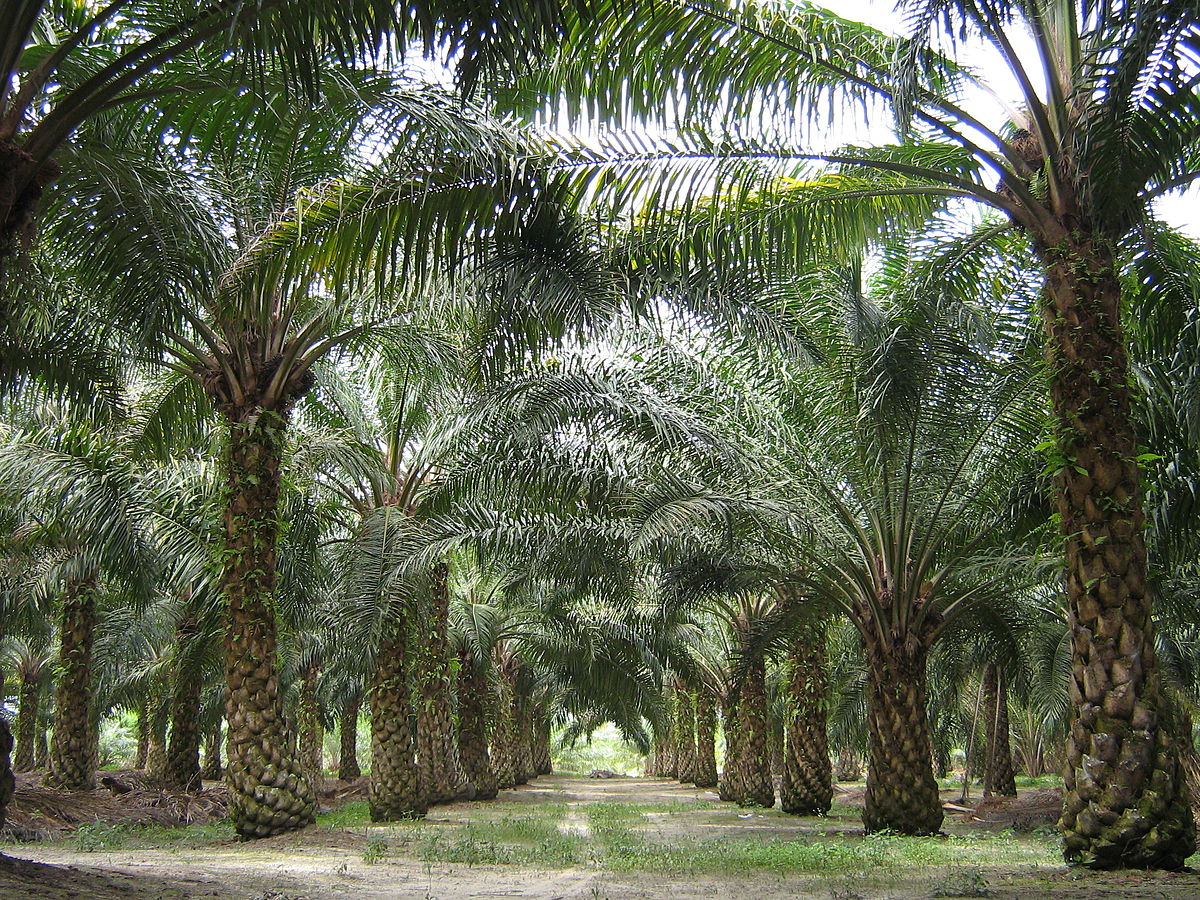Palm oil: A growing problem
This article is the first in a three-part series examining problems with palm oil production.
This article is the first in a three-part series examining problems with palm oil production. It was published in the July-August 2018 issue of NewsNotes.
Read Part Two: Palm Oil: Thriving on collusion
Palm oil is increasingly becoming a part of our everyday lives. Since it is resistant to spoilage, healthier than trans fats, and remains stable at high temperatures, palm oil is favored by many manufacturers of baked goods, confectionery items, shampoos, cosmetics, cleaning agents, washing detergents, toothpastes and more. Palm oil can also be used as a substitute for crude oil to make biofuels and as a fuel to be burned in power stations to produce electricity.
On the face of it, palm oil looks like a clean substitute for fossil fuels – but that’s far from the end of story.
Originally from West Africa, palm oil is now grown around the world, especially in Malaysia and Indonesia, where 84 percent of the world’s palm oil is produced. Unfortunately, while bringing in money and providing some jobs, palm oil plantations also produce many serious negative side effects.
Deforestation might be the biggest problem as hundreds of thousands of hectares of forest have been cleared around the world to open space for palm oil plantations. In a landmark 2007 report entitled Cooking the Climate, Greenpeace showed that deforestation in Indonesia alone was releasing 1.8 billion tons of greenhouse gases into the air every year, meaning that four percent of global emissions came from only 0.1 percent of Earth’s land. Ten years later, Greenpeace produced a follow-up report that concluded that, despite promises by companies to slow and stop the destruction, the palm oil industry continues to drive deforestation.
Deforestation represents a lethal threat to a number of endangered animals such as the Sumatran orangutan, rhinoceros, tiger and elephants. Roads built deep into dense forests to transport the oil for export destroys their habitats and opens new areas for poachers who kill these rare animals to sell their parts on international markets.
Palm oil production also poses a particular threat to indigenous peoples. In 2016, Maryknoll Sister Ann Braudis joined fellow Maryknoll Sister Eva Canales in Guatemala to investigate allegations of human and land rights violations perpetrated against poor and indigenous people by palm oil companies.
“Palm oil companies have cultivated more than 80 percent of the land surrounding and in the town of Sayaxche,” Sister Braudis wrote in the March-April 2016 issue of NewsNotes. “The production of edible palm oil is a large monoculture process that uses large quantities of water and toxic pesticides, and is destructive to the soil. Palm oil production has taken over and rendered infertile land needed to cultivate corn, beans, and rice for local consumption.”
In interviews with the Sisters, local indigenous community members spoke about concerns such as social divisions caused by pay-offs to government officials and the hiring of non-local laborers, children who were ill due to the contaminated environment, and the murder of an elected official who took legal action against a palm oil company after a toxic spill contaminated the community’s water source.
Burning is also used to clear land to plant palm, which, in addition to releasing more greenhouse gases, produces significant air pollution. In Malaysia and Indonesia, these fires are nearly impossible to put out because of the thick peat underground. After removing the trees and their root systems that stabilize the soil, land erosion and river pollution also become serious concerns.
Since most palm plantations are in isolated, rural areas, labor conditions can be atrocious. Workers often face long hours, sub-minimum wages, and dangerous working conditions. They are sometimes given unrealistic production quotas that force workers to bring their spouses or children to work with them without compensation to meet demand. Child labor is also prominent. While men lift the heavy palm fruit bundles, women, often with no or minimal protective gear, are often responsible for spraying fertilizers, pesticides and herbicides for hours each day on row upon row of palm trees.
Global demand for palm oil could increase dramatically depending on decisions made by the International Civil Aviation Organization (ICAO) at meetings in Montreal scheduled to held June 11-29. In order to reduce carbon emissions in the aviation sector, the ICAO may rule to allow airplanes to use any biofuel that meets two minimal requirements: “feedstock should not come from land deforested after 2009” and “biofuels should have 10 percent greenhouse gas emissions compared to conventional jet fuels.”
More than 90 civil society organizations sent a letter to the ICAO detailing concerns that the criteria are based on flawed methodology and are too weak. Carlos Calvo Ambel, analysis and climate manager at Transport & Environment, said “The EU and its member states in the ICAO Council were outmaneuvered by Brazil and the U.S. that successfully pushed to trash the robust safeguards that were initially proposed.”
In the next issue of NewsNotes, we will examine land grabbing and corruption in the palm oil industry.
Photo: A palm oil plantation in Malaysia by Craig – Own work, Public Domain.

